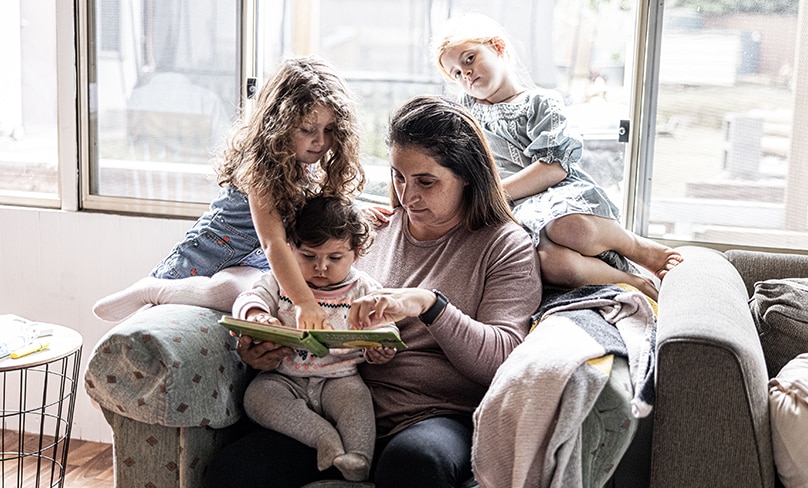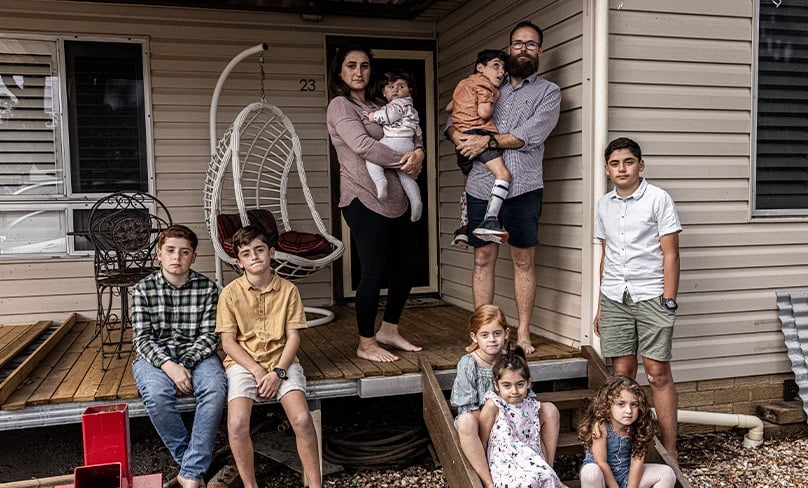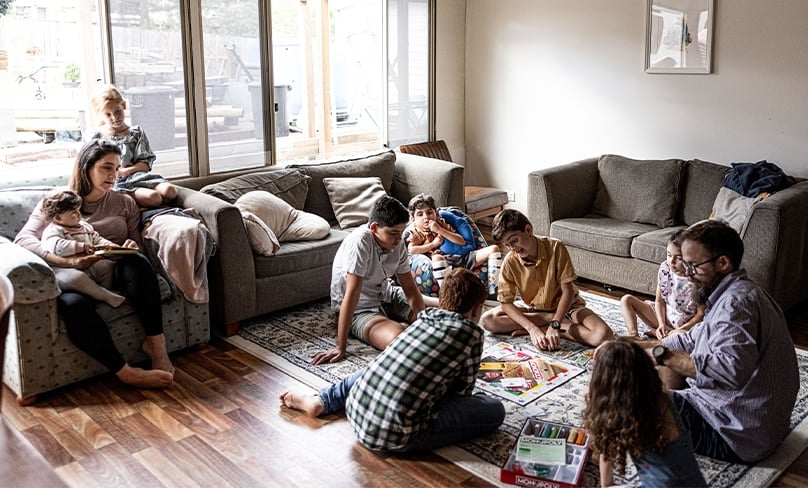
It is impossible to raise a family on a single minimum-wage income without falling into poverty, the Australian Catholic Council for Employment Relations has shown in its submission to the 2021-22 Annual Wage Review.
The submission calls for a 6.5% increase to the national minimum wage of $20.33 per hour, or $772.60 per week, a bigger increase than Labor or the Australian Council of Trade Unions.
The submission found that a single-earner couple parent family of four, dependent on a minimum wage job, would be living at 18% below the poverty line.
Sole parents find themselves at 21% below the poverty line with one child, and 25% below with two.
Even if the family breadwinner gets a skilled trade job on an award wage, they will still be 9% below.
“Just to show you how far behind the national minimum wage has fallen – but obviously the report isn’t calling for a 31% increase—it’s calling for a 6.5% increase.”
Dr Tom Barnes, an economist from the Australian Catholic University whose research formed the basis of the submission, said the gap between the lowest-paid workers and the poverty line was increasing due to rising costs and years of effective cuts in real wages.
The submission notes that to raise the national minimum wage to the poverty line for sole parents with two dependent children would require a 31% increase in increments over 5-10 years.
“Just to show you how far behind the national minimum wage has fallen – but obviously the report isn’t calling for a 31% increase—it’s calling for a 6.5% increase,” Dr Barnes said.
Despite “real issues and real problems” for business, such as supply chain disruptions and the pandemic, Dr Barnes said that “profits are not in a bad shape at any point in recent history”.

“Companies can absorb higher costs in other elements of their cost-base. They can absorb a modest increase in low wages—particularly in the context where real wages have been falling for years.”
Labour costs are not driving inflation in low-wage industries, which are dependent on migration and are suffering a shortage of staff due to the pandemic, he added.
Joshua Portelli, 39, works in manufacturing and supports his wife and eight children aged between 10 months and 14 years old.
He said living in Western Sydney on a single income was “almost like you’re in peak survival mode all the time”.
“Traffic, where you park, access to services, supermarkets—our shopping habits have changed, our living habits have changed, we’ve learned to be a lot more efficient with things,” he told The Catholic Weekly.
“He said living in western Sydney on a single income was ‘almost like you’re in peak survival mode all the time’.”
After his first child was born, Mr Portelli and his wife Deena planned for her to leave her white-collar job in finance to raise children.
Within six years they had four boys, one of whom acquired a disability shortly after his first birthday.
They went from “basically normal to ‘living on the fringe’,” Mr Portelli said, juggling work, doctors’ appointments, therapy, and raising their children.
Despite the economic stress, and a “really traumatic” experience during the COVID-19 lockdowns, Mr Portelli says he doesn’t feel like he has to deny himself.

“I come home to eight kids, seven of them are running to give me a hug. People who are older say, ‘you can’t buy that’.”
His faith has also been “a silent support”.
“If it wasn’t your effort and the grace of attending the sacraments, there’s no way we’d be able to do these things,” Mr Portelli said.
While he does not necessarily disagree with raising the minimum wage, Mr Portelli thinks taxation, cost of living issues and the way we value our lives are more important issues.
“They can give us a wage increase, and then it just gets stolen in the price of living: whether it’s accommodation, $2.10 a litre for fuel,” he said.
“They went from ‘basically living on the fringe’, MR PORTELLI SAID, JUGGLING WORK, DOCTORS’ APPOINTMENTS, THERAPY AND RAISING THEIR CHILDREN”.
“That’s what I’d encourage the Church to say. Step up and say to the government: ‘Perhaps you’ve convinced yourselves you’re super important, but there are a lot of people just living in fear.’”
He wants the Church to highlight the burdens of high taxation on families, and the economic benefits of stay-at-home mums, compared to those who work in “corporate entities not based in Australia or who don’t pay their fair share of tax”.
Dr Barnes said a failure to increase wages would exacerbate many of the stresses of Australia’s post-pandemic recovery.
“I think you’d expect there to be not just increases in poverty as officially measured, but increases in mortgage foreclosures, increases in homelessness, increases in demands for emergency social assistance, negative physical and mental health outcomes,” Dr Barnes said.
Related Articles:
